Decoding one of India’s largest footwear and mattress brands and other top stories of the week
Started in 1947, Metro Shoes is as old as India is independent, while the story of Peps Mattresses features K Madhavan who decided to become an entrepreneur at the age of 55 along with his two colleagues.
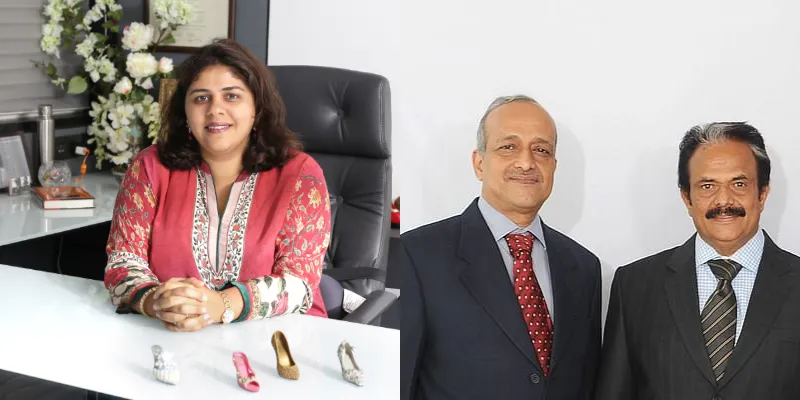
This week, SMBStory brings you the stories of Metro Shoes, a footwear brand that is as old as free India, and Peps Mattresses, whose founder K Madhavan decided to become an entrepreneur at the age of 55 along with his colleagues, G Shankar Ram and P Manjunath.
Metro Shoes
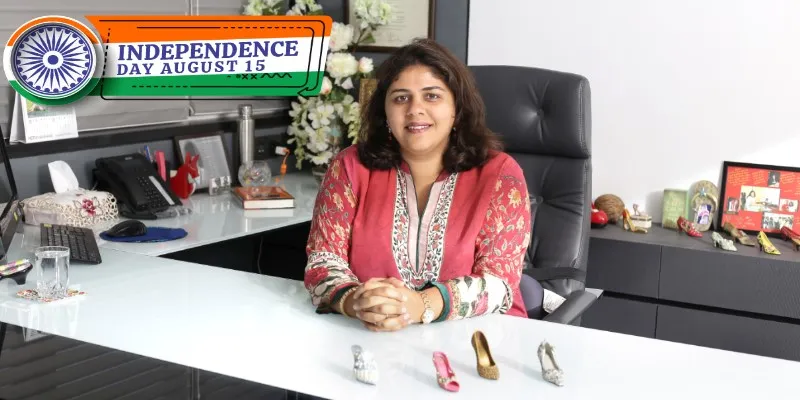
Farah Malik Bhanji, CEO, Metro Brands
Malik Tejani was a shoe salesman during the pre-independence era and used to work at a store in Colaba, Mumbai. When India became independent, the owner of the store had to leave the country owing to the crisis caused by Partition. An extremely passionate salesman, Malik took a loan from a well-wisher and bought the store.
He named the store Metro Shoes, derived from the popular Metro Cinema in Mumbai. Today, Metro Brands Limited is one of the most well-known footwear brands in India, selling across different categories for men, women, and children.
After Malik Tejani, his son Rafique Malik took over at the age of 16 and today, Malik’s granddaughter Farah Malik Bhanji runs the family business as its CEO.
Farah recalls how much the business has changed since the time of her grandfather, for whom, she says, selling shoes was both an art and a fun activity. She tells that Malik used to be instantly recognised by the customers who came from different parts of the country. But now the focus has shifted from personality to personalisation due to a push for customer engagement.
“I have never seen a time in my life when the customer has been so important as is the case today. It has also become crucial to understand the importance of every single person who chooses your brand,” Farah adds.
The brand clocks a turnover of Rs 1,411 crore annually and has a network of over 550 stores across 128 cities in India.
Peps Mattresses
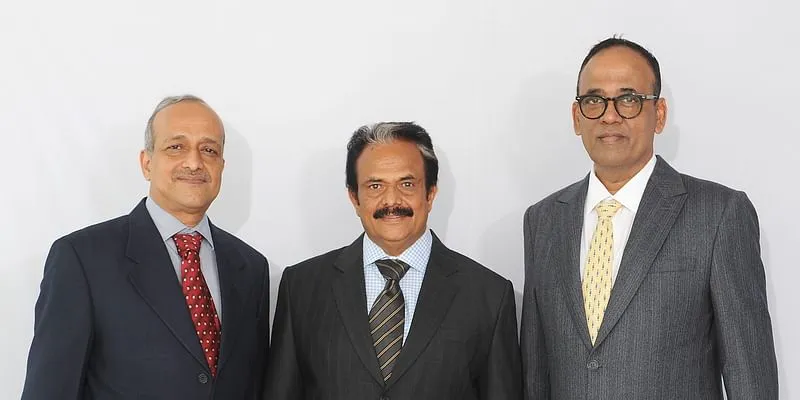
Peps co-founders (from L to R) P Manjunath, K Madhavan and G Shankar Ram
In 2006, K Madhavan, President of Operations, Kurl-On, came across a golden business opportunity. Two of his business friends and mattress manufacturing experts — G Shankar Ram and P Manjunath — pitched an idea to Madhavan. A factory was up for sale in Coimbatore, Tamil Nadu, and it had the capability to manufacture spring mattresses.
At that time, the focus of the organised Indian mattress industry was on the conventional coir and foam mattresses. On the other hand, the unorganised sector largely dealt with cheap, cotton mattresses.
“The spring mattress industry was largely untapped. There was just one other player in the spring mattress industry — a small manufacturer in north India. Seeing a business opportunity, we decided to start our own venture in the spring mattress segment,” Madhavan tells SMBStory in an exclusive interview.
At 55, after nearly three decades of service in the conventional mattress industry, Madhavan made the bold decision to become an entrepreneur and disrupt the market. Madhavan and his partners Shankar and Manjunath took over the mattress unit in Coimbatore in 2006 to start their spring mattress business. This was the genesis of Peps Industries.
By making simple, convenient, and affordable spring mattresses accessible to the masses, Peps emerged as India’s leading spring mattress brand.
As of today, Peps’ estimated turnover is around Rs 345 crore. Currently, it employs over 1,500 people. Based in Bengaluru and with the manufacturing facility in Coimbatore, it has a few auxiliary units in the north, south, east, and west India.
Other top SMB stories of the week-
Nilkimal
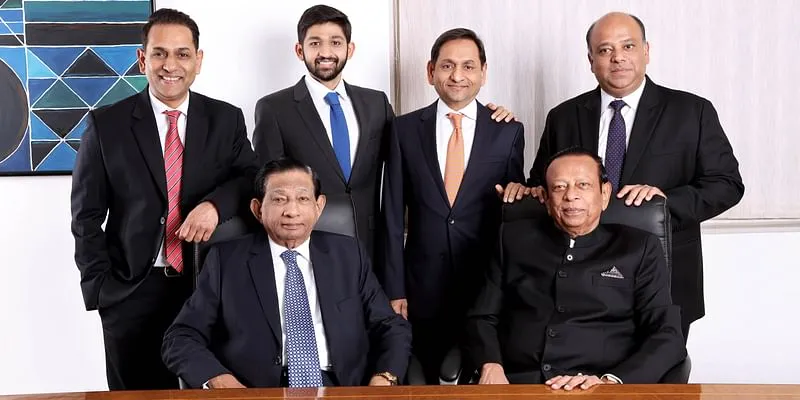
(Standing, from left to right) Manish Parekh - Executive Director (Furniture), Mihir Parekh - Executive Director and Founder of the BUBBLEGUARD DIVISION, Hiten Parekh - Joint Managing Director, Nayan Parekh - Executive Director (Material Handling).
In 1981, Vamanrai Parekh and Sharad Parekh decided to step out of the family business of manufacturing buttons and pivot to making plastics, which was gaining prominence in the market. The brothers started a small business of manufacturing plastic household items at a rented premise in Powai, Mumbai, including buckets, baskets, mugs, etc.
Thus began Nilkamal Plastics, which later became Nilkamal Limited. At the time, little did the brothers know that their small business would churn big profits, becoming a household name for everyday needs. Over the last four decades, Nilkamal has garnered a strong legacy and gained the consumer’s trust.
While Vamanrai and Sharad were running the plastic household items business, they thoroughly researched the market to expand further. One day, while passing Worli Dairy, the duo saw wooden crates being used to carry the milk bottles. However, the brothers realised that plastic crates would be easier to handle, more durable, and cheaper.
“Around 1,000 crates were being used in one dairy, and my grandfather and his brother saw a huge opportunity in the material handling segment. Hence, in the mid-80s, they started manufacturing crates by setting up another unit in Andheri, Mumbai, and entered the B2B segment,” Mihir tells SMBStory.
In the late 80s, the brothers were attending an exhibition in Germany, where they saw long rows of plastic chairs. At the time, Indians were using wooden or metal chairs, and plastic furniture wasn’t in demand. But Vamanrai and Sharad placed an order for the chair mould in Germany and decided to manufacture plastic chairs in India. Hence began Nilkamal’s furniture manufacturing vertical.
Today, with over 2,000 distributors who supply Nilkamal products to 19,000 retail points, and with a sales team of more than 400 who manage its B2B segment, the company rakes in a turnover of more than Rs 2,200 crore.
Sri Anantheswara Foods
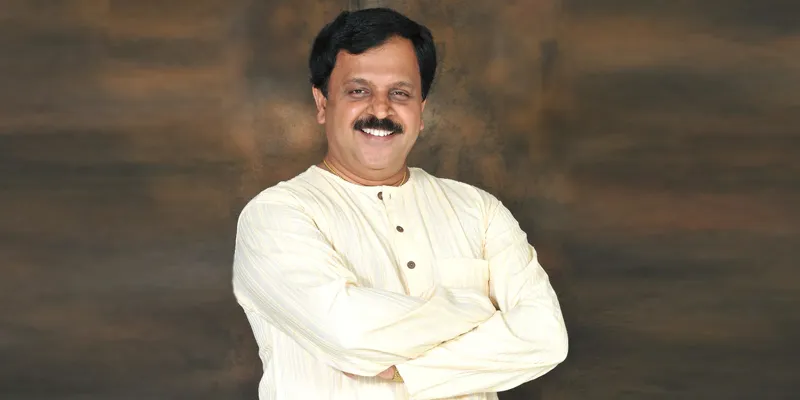
Vasudev Adiga, Founder of Sri Anantheswara Foods | Image Source: Vasudev's team
Sometime in the last decade, engineers from India’s top institutions started quitting their cushy jobs to start tech companies. And this trend picked up quite fast. In fact, a 2017 report by Randstad Workmonitor stated that 83 percent of the Indian workforce wanted to become entrepreneurs, with 56 percent of respondents indicating that they were considering leaving their jobs.
However, it is not every day that we come across stories of engineers who quit their job to start a food business in the early 90s’. Vasudev Adiga quit his job to follow his passion for food. He founded Adiga’s — a darshini — a vegetarian restaurant with limited and affordable food items, which became a household name in Karnataka since 1993.
After establishing 30 outlets across Bengaluru, Vasudev exited the company, selling it off to the New Silk Route Venture Capital from New York. In 2018, he began another restaurant-chain venture — Sri Anantheswara Foods Pvt Ltd. The new restaurant chain currently boasts of two brands, Nandi Upachar and Paakashala. The group recorded a turnover of more than Rs 50 crore last year.
Edited by Kanishk Singh










![[100 Emerging Women Leaders] How Gayatri Agrawal is inspiring women to embrace tech](https://images.yourstory.com/cs/2/f9bdfa20c75811ed9569e5d19beae38b/100EWLGayatri-AgrawalFeatureImage-1732290015187.jpg?mode=crop&crop=faces&ar=1%3A1&format=auto&w=1920&q=75)